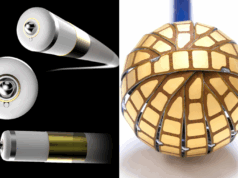
New results from a sub-analysis of the TRUST trial, published in the European Heart Journal, show that remote monitoring of implantable cardioverter defibrillator (ICD) patients improves care and strengthens patient-physician links.
According to a Biotronik release, the sub-analysis examined recommended implantable cardioverter defibrillator follow-up methods by comparing patient adherence in two groups: those who were given remote follow-ups with Biotronik Home Monitoring and those who had calendar-based, in-person follow-ups. Over the 15-month follow-up period, patient adherence was found to be 25% higher in the Home Monitoring group. This pointed to an optimised doctor-patient link, which can positively affect treatment success.
“The TRUST trial demonstrated that automatic remote patient management is more efficient for the clinic. Now, this sub-analysis also shows that Home Monitoring is more effective and reliable in reaching follow-up goals,” explains primary investigator Niraj Varma, Cleveland Clinic, Ohio, USA. “More frequent conventional, routine in-person evaluations were shown to lead to patient attrition, as patients were perhaps more likely to drop out of the follow-up process when they viewed multiple follow-ups as unnecessary and intrusive.”
The TRUST study was a prospective, randomised, multicentre clinical trial that enrolled 1,450 patients at 102 North American sites. It demonstrated the safety and efficacy of Biotronik Home Monitoring in reducing in-office follow-ups by 45%. Now, this sub-analysis shows that remote follow-ups with Home Monitoring also improve patient retention. Within the Home Monitoring group, there was an overall 25% greater adherence to all recommended follow-up evaluations. There was also higher adherence to the yearly in-person evaluation when compared with conventional patient management, which was twice as likely to lead to a missed follow-up.
“The TRUST study leads us to believe that we should re-evaluate the traditional standard of care based on in-office evaluation,” adds Varma. “Perhaps, instead of in-person follow-ups for post-implant patients, the new standard should be automatic, daily remote monitoring, which may lead to more effective patient treatment.”
The current guidelines of the European Society of Cardiology indicate that a completely automatic and proven remote monitoring system will play an even more important role in the future of device therapy. In fact, the European Society of Cardiology has recently recommended implant-based remote monitoring with a grade of IIa and the highest evidence level.









